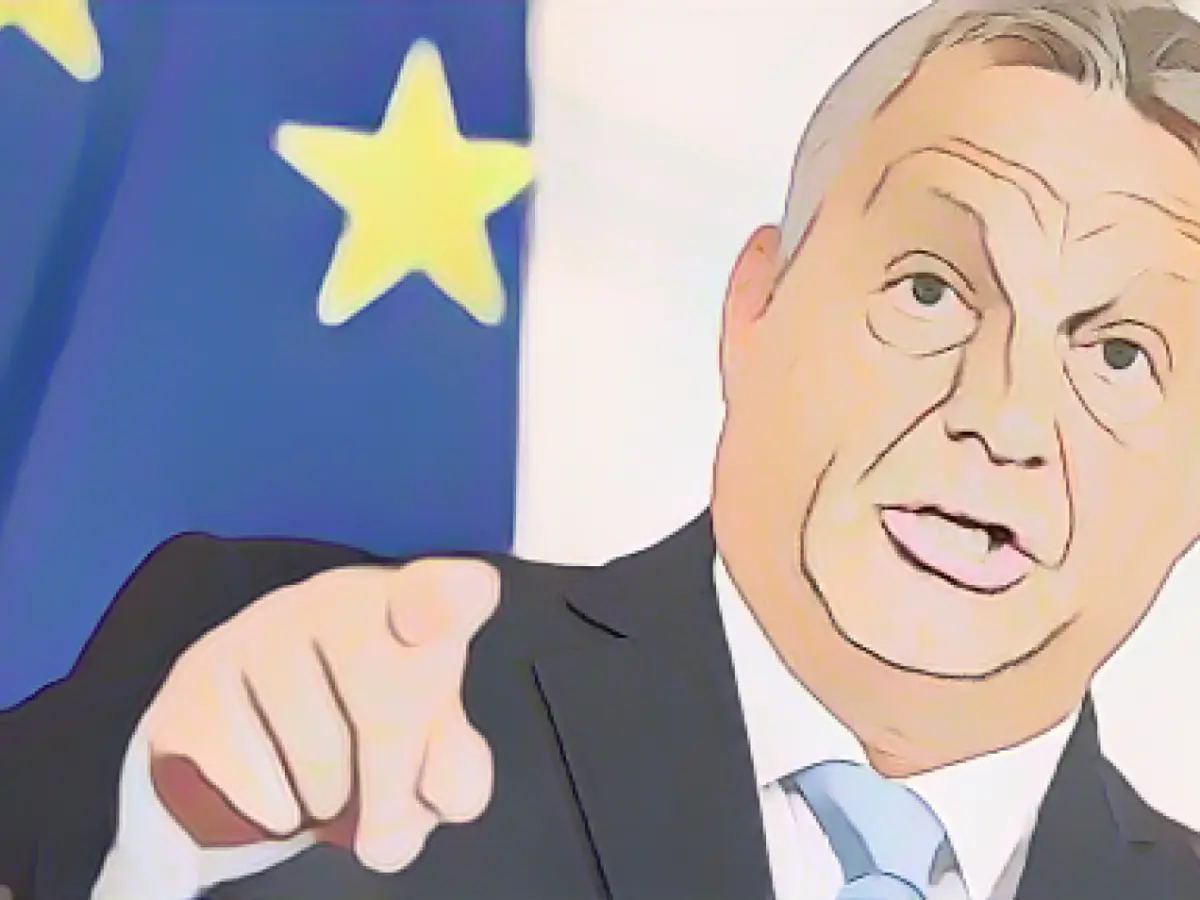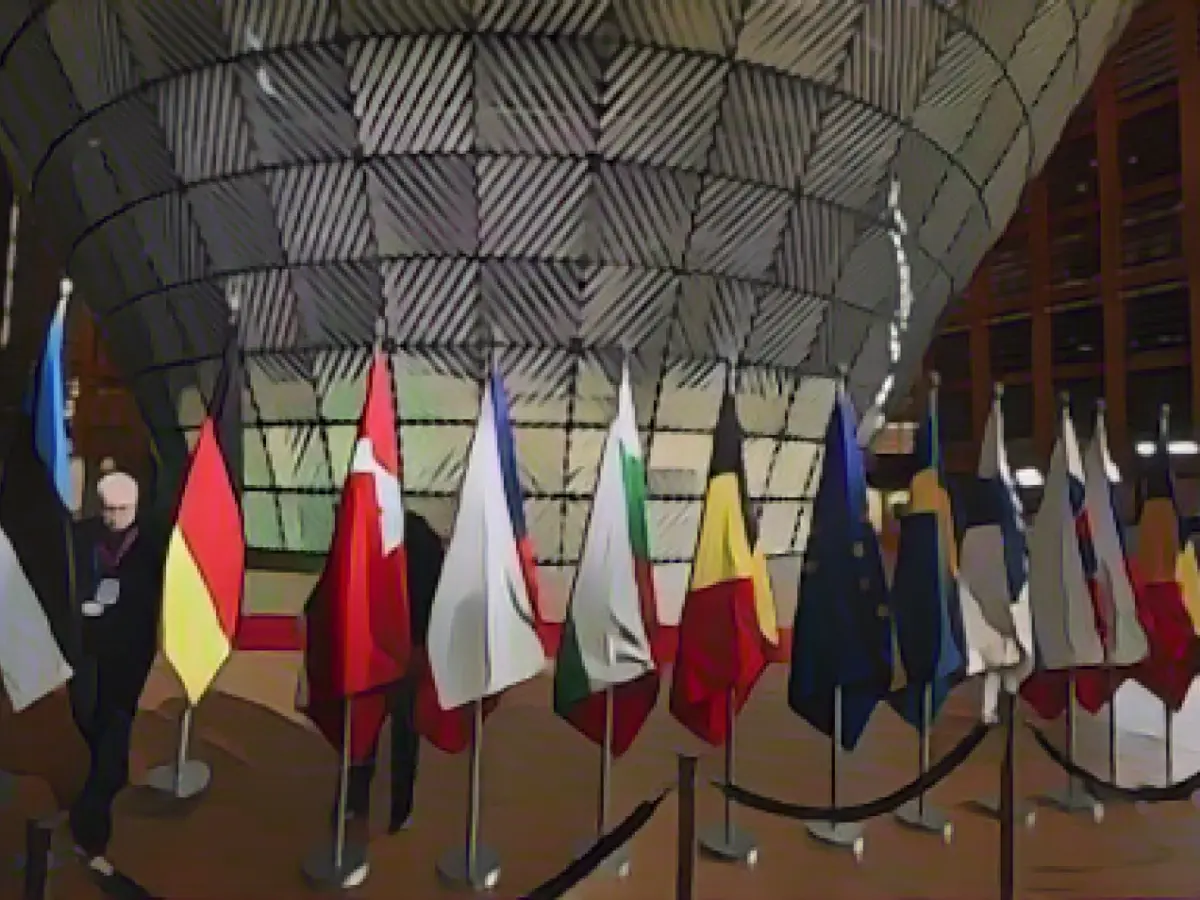EU Summit Drama Unfolds As Orban Threatens Veto Over Ukraine Talks
The upcoming EU summit is shrouded in uncertainty, with heads of state and government unsure of how the two-day meeting in Brussels will conclude. The primary focus of the summit is the European Commission's proposal to initiate EU accession talks with Ukraine and Moldova, as well as potential budget increases and financing for Ukraine. However, Hungary, led by Prime Minister Viktor Orban, may threaten to veto these decisions due to unmet reform requirements in Ukraine, particularly regarding its relationship with Russia.
Orban's Veto as a Power Play
Orban has made it clear that he believes no decisions should be made on the budget and EU accession negotiations with Ukraine at present. As decisions on both issues require consensus, Orban could theoretically block them with a veto. EU diplomats suggest that Orban might be using the veto as leverage to secure the release of further frozen EU funds for Hungary, which currently has around 12 billion euros in blocked budget funds and billions more in coronavirus aid. However, others point out that Orban has recently been firm on his stance against Ukraine, indicating he won't back down even after the release of funds.
Ukraine Issues a Warning
In the face of a potential Hungarian veto, Ukraine has issued a warning to the EU, stating that a failure to start accession negotiations between the EU and Ukraine would result in devastating consequences for the people of Ukraine and project an image of the EU struggling to make impactful decisions. After announcing the release of ten billion euros in frozen EU funds for Hungary, which had fulfilled judicial reform requirements, the EU Commission escalates the interest.
German Chancellor Olaf Scholz, who is expected to attend the summit, has signaled his support for starting EU accession negotiations with Ukraine. However, the German government opposes the EU Commission's proposal to invest billions into the EU budget without reallocating funds first.
The EU's Focus on Moldova and Ukraine
The EU's push to open accession talks for Moldova and Ukraine comes amid pressure to address their handling of Russia. Foreign ministers in the Eastern Partnership have questioned the EU's commitment to their countries' future EU membership prospects, while Hungary's tough stance on Ukraine has raised eyebrows.
The uncertainty surrounding the EU summit raises questions about the bloc's ability to manage internal divisions effectively. The successful integration of Ukraine and Moldova into the EU relies on the EU's ability to overcome Hungary's blocking threats and maintain consensus. The potential consequences of a failure to do so could harm the EU's credibility and demonstrate its inability to advance the accession of aspiring member nations.
Additional Insights
- Hungarian demands include a plan to protect national minorities and a requirement for Ukraine to present legislation against hate speech and discrimination, two topics that have been contentious points of contention between Budapest and Kyiv.
- While Hungary has been a consistent obstacle to Ukraine's membership in the EU, Ukraine has made significant progress in recent years. This includes implementing reforms, addressing its rule of law, and fulfilling other requirements to advance its membership process.
- The European People's Party (EPP), which Hungary's Fidesz party is a part of, has attempted to mitigate internal divisions within the group by emphasizing shared values and common interests. However, these efforts often fall short of addressing the core issues that strain relations between member states.
- The "Eastern Partnership," a policy established by the EU, aims to strengthen ties between the EU and Eastern European countries, including Ukraine and Moldova. The policy is intended to promote political association and economic integration, while providing the necessary guidance for these countries to meet EU membership requirements.
Source:
Enrichment Data: Hungary's objection to Ukraine's EU accession talks has been an ongoing issue, blocking the opening of the first cluster of negotiations on the rule of law and insisting on additional conditions relating to national minorities. Despite progress by Ukraine in fulfilling its membership requirements, the outlook remains uncertain. The EU's efforts to convince Hungary to drop their objections and allow the negotiations to proceed face a challenging path due to Hungary's insistence and lack of cooperation on foreign policy decisions. The consequences of a failure to start the accession talks could impact Ukraine and Moldova's integration into the EU and raise questions about the EU's ability to manage internal divisions effectively.





